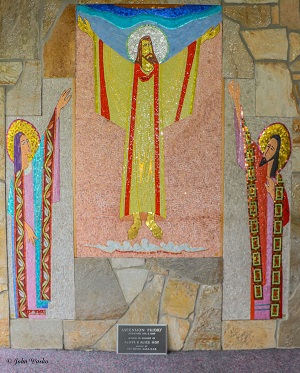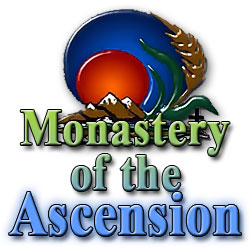Reverence
Anita Koehn
The reverence that we should experience in our relationship with God includes humility and the fear of God. The Rule of St. Benedict (RB7.10-11) expresses it as follows: “The first step of humility is that we keep the fear of God always before our eyes and never forget it. We must constantly remember everything God has commanded, keeping in mind that all who despise God will burn in hell for their sins, and all who fear God will have everlasting life awaiting them.” The fear mentioned here is a reverence for God and Christ our Lord who are all-knowing and all-seeing and to whom we must give account. Benedict’s fear of God is not meant to inspire terror but reverence, the basic religious sentiment that characterizes all genuine religious experience. The fear of the Lord that the Rule of St. Benedict often calls for is not so much the fear of hell but the “beginning of wisdom” (Prov 1.7).
Listening to the Rule of Benedict forms in one’s mind the image of God and a Christ who are transcendent, sovereign, and omniscient. Reverence is required in prayer (RB 20.1; 47.4; 50.3), in making important decisions (RB64.1; 65.15), in religious officials (RB 31.2; 36.7; 53.21; 66.4), and is extended to all people and even to things. We act reverently because we are mindful of the presence of God in all these situations. Benedict seems to have found the world and all that is in it sacred, worthy of care and cultivation, and too precious to claim as one’s own property.
In his book Essential Monastic Wisdom, Fr. Hugh Feiss quotes Louis de Blois concerning reverence in our daily lives. De Blois says we should stay free of multiplicity and preserve oneness of spirit within ourselves. We need to let our minds form an idea of God and of his supreme majesty and goodness and try always to keep his lovable presence before our mind’s eye. It was because the saints were absorbed in God that they were truly capable of seeing and appreciating created things and because they loved Him alone that they loved everybody. St. Benedict writes that the elderly and children need special understanding. This is especially so when society seems increasingly to say that productivity and usefulness are the qualities by which we judge the worth of an individual. Benedict is telling us that respect should be shown to those who apparently contribute little or nothing to the community in these terms.
Benedict knew that the secret of the holy life was not so much a holy reputation as it was a holy attitude: reverence for God, reverence for the body, reverence for the other who is younger and unimportant, or older and useless now, or in opposition to us. Benedict has a deep belief and respect for each of us as sons and daughters made in the image of God. It is up to each of us to take due and proper responsibility for the handling of this amazing gift of our sonship and daughterhood. In a society that depends on reputation to such a degree that people build themselves up by tearing other people down, the chapter on mutual obedience turns the world awry. Monastic spirituality says that we are to honor one another. We are to listen to one another. We are to reach across boundaries and differences in this fragmented world and see in our differences distinctions of great merit that can mend a competitive, uncaring, and foolish world. After God, it is human beings who deserve our honor. Chastity, whether married or celibate is very much a matter of reverence for ourselves and for other persons embodied and alluring, whom we are tempted to possess or control and so to violate.
As Benedict’s Rule says: “When the work of God is finished, let all go out with the greatest of silence; and let a reverence be made to God.” (55.2). Let them bow reverently as they go out, and let them have reverence in their works that are done in the service of God, and not rush into anything wanton or excessive.
References
Kardong, Terrence. New Dictionary of Catholic Spirituality. Michael Downey, ed. Collegeivlle: Liturgical Press, 1993. Pp. 84-91.
Feiss, Hugh, OSB. Essential Monastic Wisdom. New York: HarperCollins, 1999. Pp. 83-88.
Tybor, Rita, and Hugh Feiss, OSB, Talk at the Oblate Directors’ Meeting, July, 2001, St. John’s Abbey, Collegeville, MN.


